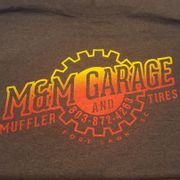What Type of Oil Do You Need For an Oil Change?

Oil functions as engine lifeblood, lubricating the auto part’s many moving components to prevent excess friction and heat. As important as oil changes are to your engine’s longevity, the wrong oil can cause part damage and voided warranties. Here, review oil types as part of your continuing auto maintenance education.
What Oil Is Right For My Upcoming Oil Change?
Regular
Regular or conventional motor oil applies to most modern vehicles whose drivers use them for “routine” tasks, such as taking the kids to school and dropping them off, running errands, and making short commutes to work. Conventional oil comes in numerous grades depending on the chemical additives used that either increase or decrease the viscosity, or thickness. Additives offer better heat tolerance and low breakdown rates, among other benefits.
If you operate a low mileage vehicle that’s a relatively newer model, opt for regular oil changes.
Synthetic & Synthetic Blends
 Synthetic motor oil undergoes chemical engineering to create a purer liquid that can withstand extreme temperature fluctuations. The additives used are also higher grade to increase cleansing, lubricating, and engine protection properties. Synthetic oils work best if you drive a high mileage vehicle subjected to serious weather and or elevation changes. You should also ask for a synthetic oil change if your vehicle has a diesel engine, which has a higher combustion compression rate than gasoline engines. Diesel engines, therefore, need oil capable of resisting between 40,000 to 50,000 psi.
Synthetic motor oil undergoes chemical engineering to create a purer liquid that can withstand extreme temperature fluctuations. The additives used are also higher grade to increase cleansing, lubricating, and engine protection properties. Synthetic oils work best if you drive a high mileage vehicle subjected to serious weather and or elevation changes. You should also ask for a synthetic oil change if your vehicle has a diesel engine, which has a higher combustion compression rate than gasoline engines. Diesel engines, therefore, need oil capable of resisting between 40,000 to 50,000 psi.
As combinations of regular and synthetic oils, synthetic blends offer cold weather as well as oxidation resistance compared to conventional versions. They function as regular oil upgrades and are recommended if you drive a larger vehicle such as a truck or SUV that frequently takes on heavy loads or has an engine with a high revolution per minute — RPM — rate.
Specialty Oils
You may need a specialty oil change depending on the number of miles your car has and its make. If your vehicle has over 75,000 miles, for example, you’ll benefit from high mileage oil that slows engine wear. It includes thickeners and other additives that keep the part lubricated and can partially restore degraded and leaking seals that increase oil usage.
Get a Dexos oil change if you drive a General Motors vehicle made in 2011 or after. All GM vehicles manufactured from 2011 onward should feature Dexos oil to increase engine efficiency and longevity, and to decrease emissions.
Schedule oil changes with M & M Garage, Muffler & Tire for the customer-oriented service you crave. Technicians at this auto repair shop serving Fort Lawn, SC, and the surrounding counties strive to make customers feel like family, and never take advantage of drivers who don’t know much about vehicle maintenance. Call (803) 872-4263 today for a free estimate or learn more about services online.
About the Business
Have a question? Ask the experts!
Send your question

